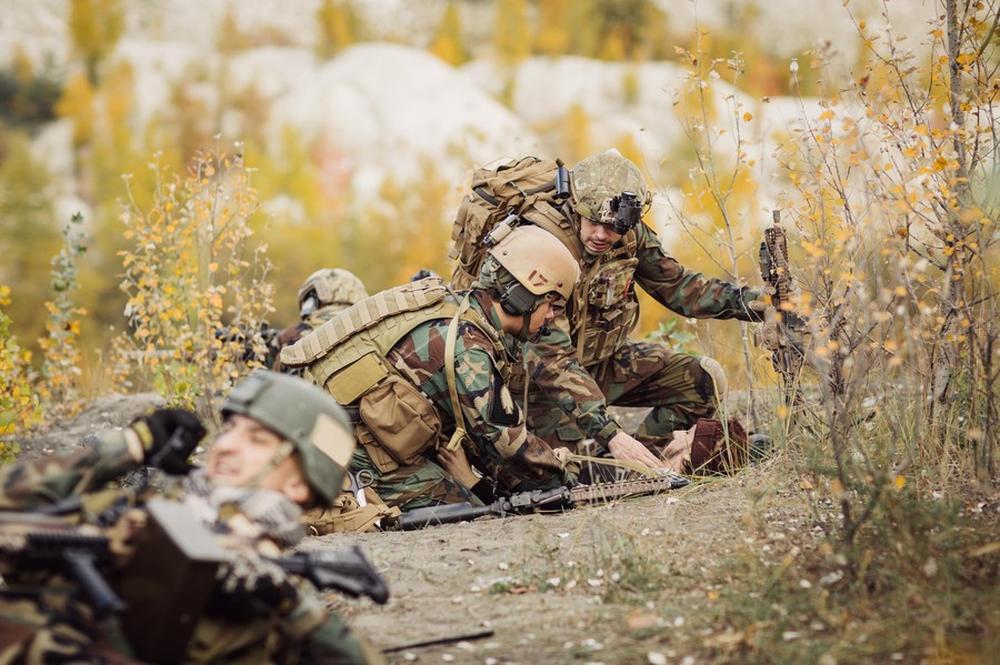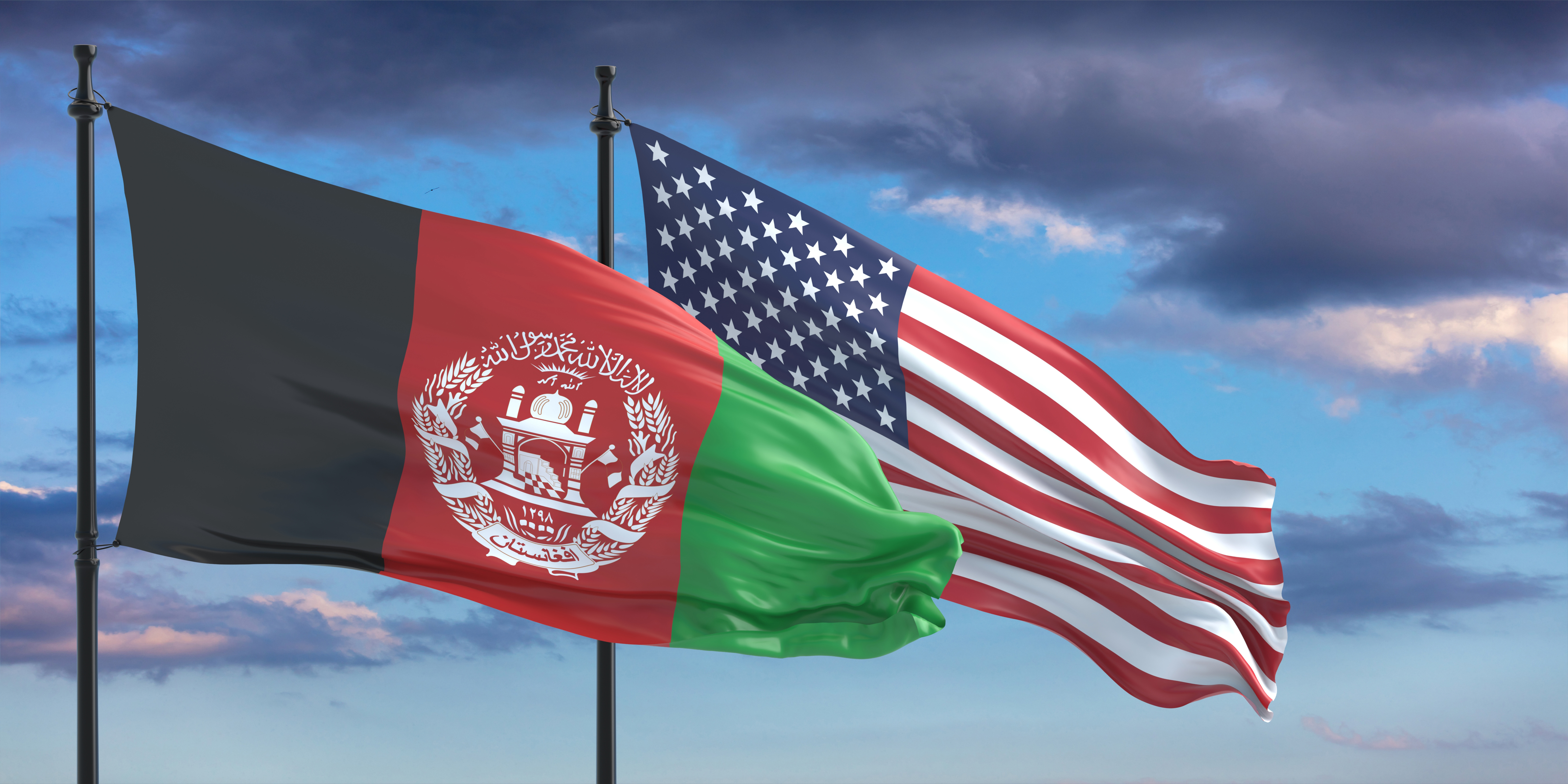- #China
- #Global Issues
- #US Foreign Policy

► China has great concerns that the Eastern Turkistan Islamic Movement (ETIM), which supports the independence movement of the Uyghurs, will penetrate and operate freely in Xinjiang.
► At this moment, ETIM is a problem between the Taliban, IS-K, and China, which will complicate issues surrounding the Chinese border. As a result, the United States has succeeded in preoccupying China.
► The United States will likely want the Korean government to conduct rescue missions involving Afghanistan. Moreover, it will likely expect Korea to accept more refugees from Afghanistan.
► We must remind ourselves that the Taliban was able to regain power in Afghanistan so quickly because Afghanistan had overly relied on the United States.
Rise of the Taliban in Afghanistan
The United States left Afghanistan after receiving a promise from the Taliban that the United States and its allies will not become the target of terrorist attacks from Afghanistan. As it withdrew from Afghanistan, the United States subsequently identified Russia, China, North Korea, and Syria as its new strategic focus. In terms of dealing China, the withdrawal from Afghanistan provides the United States with the space to manage its military more efficiently in the Asia Pacific. The sudden rise of the Taliban is not necessarily good news for China since Afghanistan and China share a 92-kilometer border, and Afghanistan’s Wakhan Corridor connects to Xinjiang. China has great concerns that the Eastern Turkistan Islamic Movement (ETIM), which supports the independence movement of the Uyghurs, will penetrate and operate freely in Xinjiang.
In October 20, 2020, U.S. Secretary of State Pompeo removed ETIM from its list of terror groups. The spokesperson for the U.S State Department said, “ETIM was removed from the list because, for more than a decade, there has been no credible evidence that ETIM continues to exist.” This came 19 years after then-Deputy Secretary of State Armitage designated ETIM as e terror list. At the time, there were speculations that the Bush administration included ETIM in the list of terror groups because it needed Chinese support as it was preparing its invasion of Iraq. This time, it appears that the exclusion of ETIM from the list may be the result of an American strategic calculation. Over the past 19 years, China has overly controlled and suppressed Muslims in the Xinjiang Uyghur region, citing ETIM as the main reason.
Following the September 11 terrorist attacks, anyone making anti-government statements or engaging in anti-government demonstrations has been labeled by China as an extreme terrorist. ETIM is simply one of many groups in Xinjiang that advocates for Uyghur independence. It is not the sole representative group of the Uyghurs. However, China has curbed any movements by the Uyghurs toward independence by labeling ETIM as the symbol of the Uyghur movement. In June 2001, the Shanghai Cooperation Organization developed a legal and political framework to fight religious extremism, separatism, and terrorism. Within this framework, China has invested a great deal of effort to hold back the Uyghur independence movement in Xinjiang. In fact, ETIM served as a useful tool for China to tie the Uyghur independence movement to extremism and, as a result, served as a justification for Chinese suppression. In this sense, the United States’ removal of ETIM from the terror list and recent statement that it cannot find any evidence of ETIM’s existence have had an empowering effect on the Uyghur independence movement.
In need of Chinese support, the Taliban has stated that it is willing to transfer anti-Chinese Uyghurs to China. This stems from Chinese concerns about Muslim activities in Xinjiang. The Taliban does not care much for the Uyghurs. Unlike Palestine and Kashmir, it does not consider the Uyghurs as a “great cause” for Islam. However, over the past 25 years, the Taliban allowed ETIM to exist within Afghanistan. Therefore, it will not be easy for the Taliban to simply transfer anti-Chinese Uyghurs to China because of the potential resistance within the Taliban. Moreover, the Taliban is now facing stiff challenge from its rival, IS-K, which considers the Uyghur issue a “great cause” for Islam and has criticized the Taliban. The IS-K suicide bombing at a mosque in Kunduz in October was carried out by a Uyghur. IS-K has been actively trying to recruit Uyghurs as its members. Supporters of IS-K calls the Taliban a “whore” of China and have criticized it for neglecting Islam’s “great cause.” IS-K argues that, unlike the Taliban, it is waging a fight to represent suffering Muslims.
The United States is no longer in Afghanistan and by removing ETIM from the list of terror groups, it is pitting one group against the other. Since ETIM is not a terrorist group, the United States has no reason to get involved. At this moment, ETIM is a problem between the Taliban, IS-K, and China, which will complicate issues surrounding the Chinese border. As a result, the United States has succeeded in preoccupying China.
Implications for the ROK-US Alliance
The United States will likely want the Korean government to conduct rescue missions involving Afghanistan. Moreover, it will likely expect Korea to accept more refugees from Afghanistan. Right now, the United States is responsible for 100,000 refugees. The success of these rescue missions will depend, more than anything, on how the Taliban establishes a unified government that is acceptable to the international community. Therefore, it is unwise to move prematurely before the establishment of a unified government, unless requests are made by international organizations. There are some who associate the U.S. withdrawal from Afghanistan with the withdrawal from the Korean Peninsula. However, ROK-US relations are fundamentally different from US-Afghan relations. Therefore, both the United States and Korea must work towards pacifying public opinions and speculations that look to devalue the ROK-US alliance. In order for the ROK-US alliance to remain robust, Korea must invest more to strengthen its independent national defense capabilities. An alliance becomes stronger only if the relationship is mutually complementary rather than one-sided. We Koreans must remind ourselves that the Taliban was able to regain power in Afghanistan so quickly because Afghanistan had overly relied on the United States.
Dr. PARK Hyondo is currently Research Professor at The Sogang Euro-MENA Institute, Sogang University in Seoul, Korea. He serves as director of the Middle East Forum for Industrial Cooperation, member for Korea-Iran Forum Executive Committee at KIEP, lecturer at the Ministry of Culture, Sports and Tourism, and chair of Publication Committee at the Korean Conference of Religions for Peace (KCRP), and editor-in-chief of Religion & Peace, a journal in English published by the International Peace Corps of Religions (IPCR). He also worked as policy advisor to the Ministry of Foreign Affairs for six years (2012-2018), and currently works as advisor on the Middle East to the Ministry of Justice. He has written extensively on Islam and the Middle East, including a chapter titled “From a Persian Barbarian to a Superior Sage to Chinese Sages: the Image of the Prophet in Ma Zhu’s Shengzan,” in Massoud ed., Studies in Islamic Historiography Essays in Honour of Professor Donald P. Little (Leiden: Brill, 2019). He received his B.A. in Religious Studies from Sogang University (Seoul, Korea), and his M.A. in Islamic Studies from the Institute of Islamic Studies at McGill University (Montreal, Canada). He completed his doctoral program (Islamic Studies) at McGill and received his Ph.D. (Islamic Studies) from the University of Tehran in Iran.

